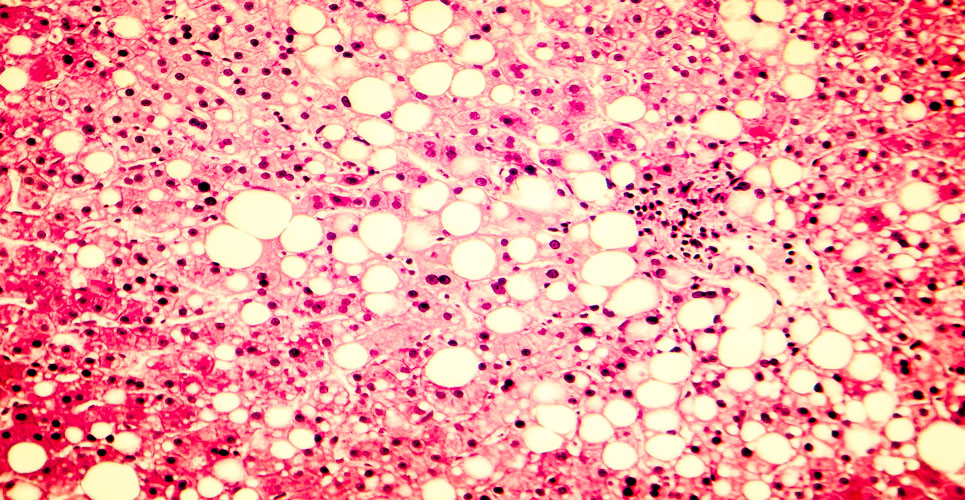The prevalence of non-alcoholic fatty liver disease (NAFLD) in Europe is a preventable epidemic, leading researchers will report at the EASL Summit 2019.
NAFLD is the accumulation of excess fat in the liver and is now the most common cause of liver disease in Western countries due to the rapid rise in levels of obesity and type 2 diabetes. It is a major European health burden resulting in liver cirrhosis and liver cancer, as well as big increases in cardiovascular disease and non-liver cancers.
“We have reached a tipping point with obesity and NAFLD and swift action is urgently needed by policy makers to reverse the growing epidemic. Obesity is the normal response to an abnormal environment and can only be tackled by addressing the multiple physical, social and economic obesogenic drivers in society.” said Philip Newsome, Secretary General of the EASL and also Director of the Centre for Liver and Gastrointestinal Research & Professor of Hepatology at the University of Birmingham, UK.
There is an acute need to improve the diagnostic tools for NAFLD, and EASL is actively supporting several such research projects.
“Meanwhile we need to educate healthcare professionals how to make early diagnoses and implement interventions that can prevent progression to a more advanced disease. We also need to empower patients so they know what steps they can take to reduce their own risk.”
“It is clear that many of the causes of NAFLD – sedentary behaviour, excessive energy intake and a poor diet are avoidable. If we are to reduce the incidence of obesity and NAFLD we need to have a significant re-think about the regulations regarding the sale and marketing of sugar products,” concludes Newsome.
EASL has been strongly advocating for the introduction of fiscal measures to discourage the consumption of sugar-sweetened beverages (SSBs) and for legislation to ensure that the food industry improves the labelling and composition of processed foods.
Helena Cortez-Pinto, EASL EU Policy Councillor and Professor at the Faculty of Medicine in Lisbon says: “Across the WHO European Region children are regularly exposed to marketing that promotes foods and drinks high in energy, saturated fats, trans-fatty acids, added sugar or salt. Food and beverage advertisements, and in particular those embedded in children’s TV programmes, electronic and social media, have been shown to drive consumption of high-calorie and low-nutrient beverages and foods. EASL has argued that public health policy needs to include restrictions on the advertising and marketing to children of SSBs and industrially processed foods high in saturated fat, sugar and salt.”
“Healthy eating is an important step in the right direction, but this needs to be supported by fiscal measures from governments to encourage behavioural change.”
“The Mediterranean Diet, characterised by a high intake of olive oil, nuts, fruits, vegetables and fish, and a low intake of red and processed meat and added sugar, is an effective solution and one that is beneficial in the treatment and also in the prevention of NAFLD,” concludes Prof Cortez-Pinto.

